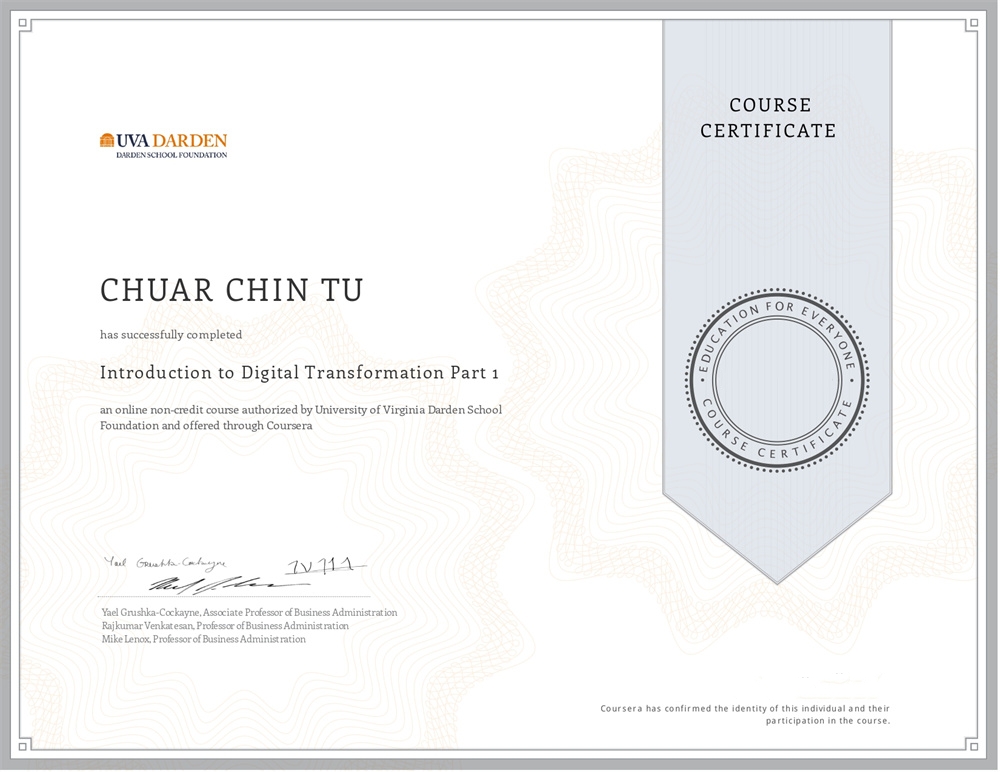Eric Chuar has completed the Introduction to Digital Transformation Part 1 for Personal & Professional Productivity and received a certificate from University of Virginia Darden School Foundation.
SCHOOL:
University of Virginia Darden School Foundation
GRADUATED:
2018
DURATION:
6 Months

Digital Transformation Skills Gained
Three fundamental laws about how digital information can be processed, communicated, and stored.
Underlying economics of innovation and technological change. Explore incumbency and the economics of innovation through the lens of digital transformation.
How the exponential rate of technological change is driving changes in the industry.
Understand the “digital transformation stack” – infrastructure, technology, business functions, and strategy
Course Perspective
Just finished the Introduction to Digital Transformation Part 1 course and, man, what a ride. You know me, I like to get my hands dirty and understand the nuts and bolts of something before even thinking about getting a certificate. Not that I think less of certificates, but let’s be honest, they often act as a facade of expertise. As someone deep into digital marketing and programming, this course hit the sweet spot.
Why’d I pick this one? Digital Transformation is like the cool, mysterious person in the room that everyone talks about but few truly understand. It’s a goldmine for anyone in digital marketing, and I couldn’t resist digging in. Plus, sharing is caring, right? I’ve been around in Malaysia and Singapore long enough to know that it’s not just about making a quick buck—it’s about real value and community. And hey, life’s short. I’ve got a family and a kid to think about; I want to spread as much knowledge as I can.
So, what did I learn?
- Three Fundamental Laws: We started by diving into the core laws about how digital information can be processed, communicated, and stored. This is the foundation for understanding how and why digital transformation is even possible.
- Economics of Innovation: This was about looking at innovation through the lens of economics, understanding the balance of power between incumbents and innovators. It’s a crucial aspect if you’re looking to disrupt or survive disruption in any industry.
- Exponential Rate of Change: The speed at which tech is advancing is mind-boggling, and this rapid change is redefining industries. Being aware of this is like having a weather forecast—you might not control the storm, but you can prepare for it.
- The Digital Transformation Stack: This was the meaty part. The course broke down the stack into four layers: infrastructure, technology, business functions, and strategy. Understanding this helps to plan and execute digital transformation initiatives with surgical precision.
In a nutshell, this course was a gem. I’m eager to use these insights in my own work and share them with anyone who’s interested. Because at the end of the day, what’s the point of knowledge if you’re not going to share it?
